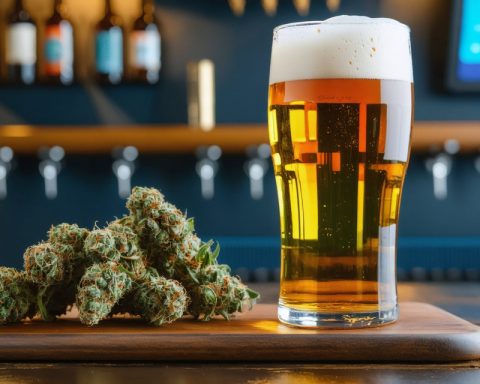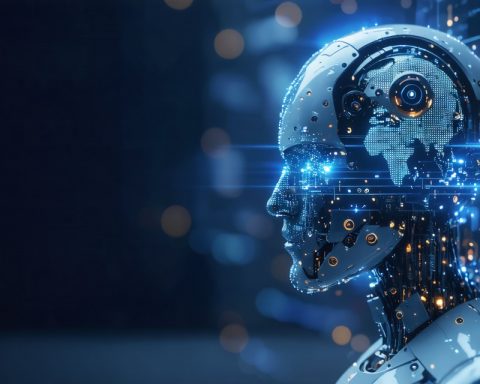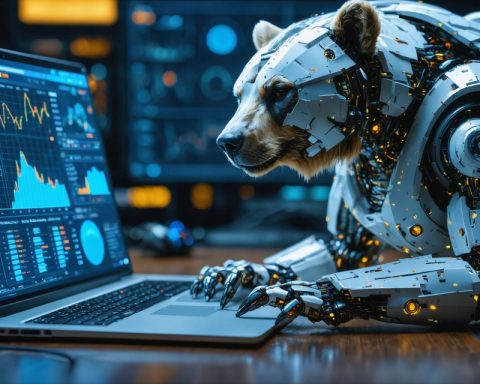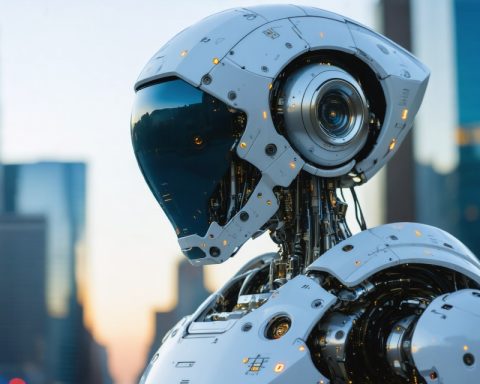AI Emerges as Restaurants’ Secret Weapon in Customer Analysis
This week, a groundbreaking AI assistant from Paytronix was introduced, poised to transform how eateries leverage customer loyalty data. Designed to simplify data interpretation, the tool allows staff to ask straightforward questions about customer preferences and reward usages, streamlining operations without the need for complex data crunching.
The assistant swiftly processes vast amounts of transaction data, offering tailored marketing strategies derived from customers’ spending habits. This innovation empowers even small dining establishments, providing insights usually reserved for larger companies with dedicated analytics resources. By harnessing natural language capabilities, the AI assistant makes accessing customer intelligence as easy as casual conversation.
AI Redefines Standards in Food Safety Testing
In a paradigm shift for food safety protocols, Penn State’s AI-driven electronic “tongue” has outperformed traditional methods with an impressive 95% accuracy in identifying food issues. By autonomously setting its assessment criteria, the AI mimics a holistic evaluation process, a stark contrast to the standard human approach.
This advanced technology comprises a graphene-based sensor network, supported by neural algorithms that evaluate the entirety of the sample rather than isolated characteristics, offering substantial improvements in both speed and precision of food safety diagnostics.
AI and Scent Engineering: A New Frontier
In an innovative confluence of AI and molecular science, researchers at Osmo have crafted a system capable of remotely capturing and generating scents. Employing gas chromatography-mass spectrometry, this technology deciphers scent molecules and reconstructs them via AI-informed robots.
Although challenges remain, such as accurately reproducing intricate sulfur compounds, Osmo is already making strides, having built what’s claimed to be the most extensive AI-compatible scent library. This could revolutionize sectors ranging from perfumery to culinary arts, underscoring AI’s limitless potential in scent technology.
Unveiling New Dimensions: Navigating the AI Revolution in Food and Dining
The rapid integration of AI in various sectors continues to reshape traditional modalities, offering innovative solutions and enhanced efficiencies. From customer analysis in restaurants to advancements in food safety and even scent engineering, AI is setting new benchmarks across industries. Here, we explore some tips, hacks, and intriguing facts about these AI-driven transformations.
Maximizing Customer Insights in Restaurants
AI tools like the one from Paytronix are revolutionizing how eateries understand their clientele. Here are some tips to harness this technology effectively:
1. Simplify Decision-Making: Use AI insights to make quick, informed decisions on menu offerings and promotions. AI tools can interpret customer preferences, enabling more targeted marketing strategies.
2. Enhance Customer Engagement: Personalize communications based on the AI’s analysis of spending habits and reward programs. Personalization increases customer loyalty and satisfaction.
3. Optimize Resources: Even without a dedicated analytics team, small restaurants can leverage AI to gain competitive insights normally reserved for larger corporations. This can help optimize staffing levels, inventory, and operational workflows.
Revolutionizing Food Safety Measures
AI’s role in food safety testing, as demonstrated by Penn State’s electronic “tongue,” is a game-changer. Here’s how it can benefit industries:
1. Speed and Efficiency: AI technology can dramatically reduce the time needed for food safety assessments, allowing issues to be identified and corrected quickly, thereby minimizing risks to consumers.
2. Comprehensive Analysis: Unlike traditional methods that focus on specific elements, AI systems evaluate the entire sample, offering a more holistic understanding of food safety.
3. Accuracy and Reliability: Achieving a 95% accuracy rate means fewer false positives and negatives, ensuring that food products meet the highest safety standards.
AI and the Scent Engineering Breakthrough
With Osmo’s scent-capturing system, AI is pushing the boundaries of what’s possible in molecular science. Consider these applications:
1. Tailored Aromatics: Businesses in the perfumery and culinary sectors could customize scent profiles for products, enhancing consumer experiences.
2. Cross-Industry Applications: Beyond perfumery, sectors like hospitality could use AI-generated scents to create desired environments, such as relaxing aromas in hotels or enticing scents in retail spaces.
3. Expanding Scent Libraries: As AI continues to evolve, creating extensive scent databases will aid in accurate replication and innovation in flavor and fragrance development.
Interesting Facts and Future Prospects
– The Osmo scent library, with its extensive AI compatibility, represents one of the first steps toward fully digital scent identification and reproduction, which could see applications in everything from virtual reality to advertising.
– The integration of AI into restaurant operations not only streamlines processes but also provides valuable data analytics and insights usually available only to major industry players, leveling the playing field for smaller establishments.
– Advancements in AI food safety testing can significantly cut down on foodborne illnesses, playing a crucial role in public health initiatives.
The ongoing marriage between AI and everyday industries promises a future where operations are not only more streamlined and efficient but also more creative and customer-focused. Leveraging these technologies effectively can offer businesses a unique advantage, ultimately redefining the consumer experience.








